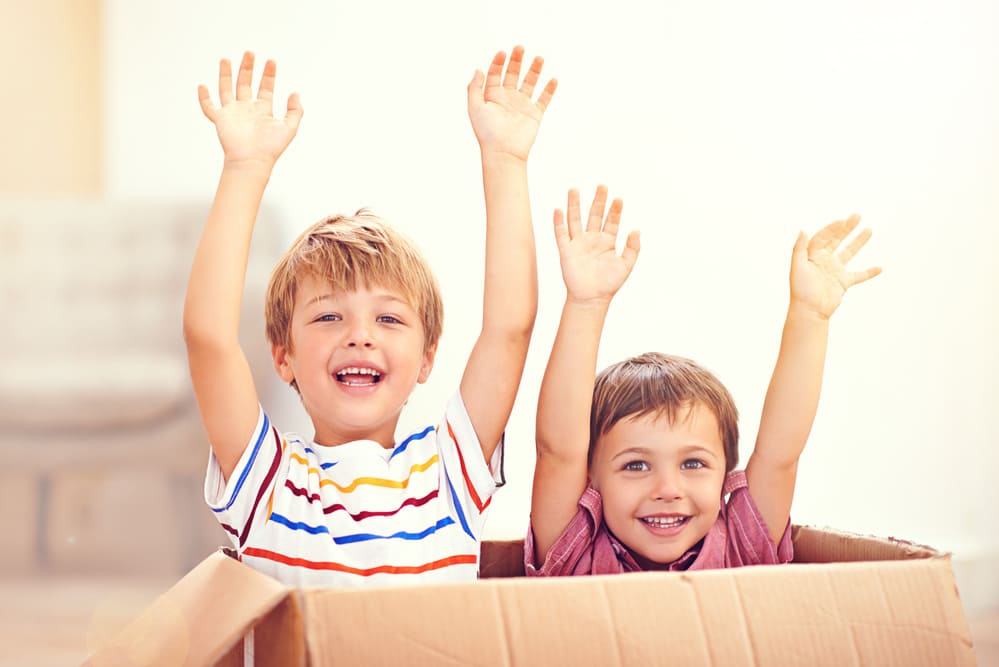Adaptation of children in Poland after moving from England | How to help them in their new environment?

Returning to Poland after an extended stay in England is an important moment for the whole family, but it is particularly challenging for children. The change of environment, school and everyday language can evoke different emotions in them – from excitement to stress. It’s worth making sure you provide the right support to make the adaptation process as smooth as possible. Below you will find practical advice and tips on how to help your child find their way in the new reality.
Preparing for a move
Before the move even takes place, it is important to prepare your child for the upcoming changes. The right attitude can help reduce stress and anxiety.
- Talking about change after the move
Explain to your child why you have made the decision to return to Poland. Try to focus on the positive aspects, such as the opportunity to meet new friends, closeness with extended family or exploring new places. Remember to be honest – your child will appreciate the openness and will feel more involved in the change process.
- Familiarisation with the new environment
If possible, visit the new locality before the move. Showing the school, the house and the neighbourhood will help your child get used to the new reality. If you don’t have this opportunity, use online resources – photos, videos or virtual tours.
- Introduction of the Polish language
If your child does not speak fluent Polish, it is a good idea to gradually introduce the language into everyday life. You can start with simple conversations, Polish fairy tales or books. This will give your child time to get used to the language before starting at a Polish school.
Changing schools after a move
A new school is often the biggest challenge. Polish educational establishments differ from those in England in both the teaching system and daily routines. To make the adaptation easier for your child:
- Conversation with teachers
Before the start of the school year, contact the teachers and the school counselor. Talk about your child’s experiences and any language difficulties. Ask about the support available, e.g. remedial classes or help from the educationalist.
- Matching the level of learning
Often, children returning from abroad have curriculum differences in certain subjects. It is a good idea to organise extra lessons, e.g. in Polish, history or mathematics, so that your child can catch up quickly.
- Building relationships with peers
The first few days at a new school can be difficult, so support your child in making friends. You can encourage them to invite new classmates home or attend school events.
Learning Polish after moving here
Children who have spent most of their lives in an English-speaking environment may need time to reacclimate to the Polish language. How to support this process?
- Introducing language into everyday life
Speak Polish at home, but do not force your child to be perfect right away. Daily conversations, reading Polish books or watching films can significantly speed up the learning process.
- Specialised language classes
In many cities in Poland, Polish language courses are organised for children returning from abroad. This allows the child to develop their skills in a group of peers with similar experiences.
- Developing vocabulary and cultural understanding
Language is not just about words – it is also about the way we think and understand the world. Help your child understand Polish customs and idioms that may be new to them.
Integration with peers
Friendships and relationships with peers are extremely important for a child in the adaptation process. How do you support your child in making friends?
- Encouraging extracurricular activities
Enrolling your child in sports, art or language classes is a great way to find common interests with other children. It can also be an opportunity to learn new skills.
- Organisation of social events
Offer to arrange for your child to meet new friends. A relaxed atmosphere at home can help make first friendships.
- Promoting self-confidence
A child who feels confident in his or her abilities will relate more easily. Praise them for their progress, both in their learning and in their interactions with other children.
Coping with emotional difficulties after an international move
Changing countries and surroundings is a huge challenge that can trigger different emotions in a child. Here are some tips on how to support your child during difficult times:
- Acceptance of emotions
Allow your child to express their feelings. Nostalgia for England, uncertainty or stress are natural reactions that are worth discussing and understanding.
- Seeking specialist assistance
If you notice that your child is having difficulties adapting, it is worth consulting a child psychologist. Professional support can help you get through difficult times.
- Creating a permanent routine
A fixed daily schedule gives the child a sense of security and predictability. Children cope better with adaptation when they know what to expect each day.
Maintaining ties with England
Returning to Poland does not mean having to give up contact with your old life. Maintaining friendships from England can be a comfort and support for the child in the new environment.
- Regular conversations with friends
Encourage your child to chat online with friends from England. Keeping in touch will help him or her to feel that moving home does not mean losing important relationships.
- Trips to England
If possible, plan holiday visits to England so your child can visit familiar places and people.
Moving from England to Poland
Adapting children in Poland after returning from England is a process that requires time, support and commitment. It is crucial to create an environment in which the child feels safe and accepted. With the right approach, openness to the child’s needs and support in making contacts and learning the Polish language, the adaptation process can be smoother and the child will quickly find their way in the new environment.
